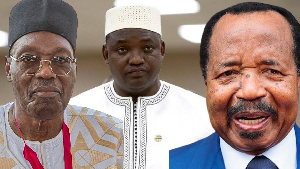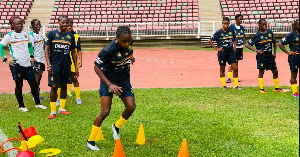Results of the 2015 General Certificate of Education (GCE) released almost two weeks ago remain topical in many homes.
For those who know what the GCE represents in the Anglophone sub system of education, there is every reason to understand the anxiety this particular examination usually generates both in candidates and in families. In effect, the General Certificate of Education sets the pace and contributes significantly in shaping the destiny of many young people.
The importance of this examination is particularly engraved in its international value. The GCE, it is worth noting, is an academic qualification that examination boards in the United Kingdom and some Commonwealth countries confer on students who succeed in their final exams at the end of secondary or high school studies.
Since Cameroon as a nation took over the management of the GCE in 1977, a lot of innovations have occurred, all with the aim of added value to the examination. One of such innovations was the creation in 1994 of the Cameroon GCE Board which in the real sense was an adaptation from that of the University of London Examination. From every indication, all these innovations seem to have brought a lot of sanity in this particular examination.
But this has not put an end to continuous search for perfection. What is however interesting about all these innovations is that each stage of change brings in its iota of disapproval. The latest of such disapprovals dates back to two years and concerns the new method of publication of results.
Authorities of the GCE Board have been at pains making the public to understand the reason behind the whole gamut of change in style. On several occasions, the Registrar of the board mounted the media rostrum to clear the air of claims that the institution is using the results as a marketing tool. This suspicion is particularly driven by the decision of the board to oblige candidates to obtain their results through the SMS sent through one particular telephone company.
Some members of the public who see nothing wrong with the decision justify it on the need to maintain secrecy especially when it comes to such sensitive results. How far this argument is true is another issue, but the public and from every indication, the majority of the candidates, are in disapproval of the new approach.
The new system of obtaining results has rather produced more questions than solution. First, the public is wondering what went wrong with the publication of results in newspapers and other media organs; second, they are asking why they should spend so much on SMSs whereas candidates had paid examination fee; three, the same public and particularly newspaper owners want to know why they must pay huge sums of money before obtaining result booklets for publication. Their argument is that they are doing a public service just as the GCE board itself. Finally, the board is being questioned for having chosen only one telephone company out of the many that exist in the country.
The disappointment is especially provoked by the hurdles candidates go through to receive back messages once they SMS the board for results. Some are said to have waited for up to two days before knowing their results. And knowing that many schools forbid students from owning handsets, things became even more complicated for them. Some were found in areas where the telephone company in question do not have network. Others who succeeded in sending SMSs received false results, the case of a student who wrote the technical GCE but who received the message announcing his failure just to be told later that he had made it.
The GCE, one must admit is a highly sensitive examination and requires a lot of care in its management especially as it concerns young people who are still in their embryonic stage of managing emotions. On the basis of this argument, it is important authorities of the GCE Board sit back and rethink the best system of publishing results in a way that will enable candidates obtain their results faster and without strain. Why can the board not publish the results on its website, is the question many have been asking.
Opinions of Thursday, 13 August 2015
Auteur: cameroon-tribune.cm














